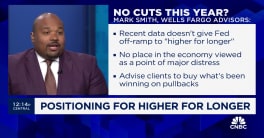The Senate Banking Committee and one of its subcommittees dealt this week, however superficially, with two issues that should be of interest to a lot of homeowners. Hopefully these won't be problems that they have just teed up and then punted into obscurity. Both are worthy of discussion if not action.
Chris Dodd, Chairman of the Senate Committee on Banking, Housing, and Urban
Affairs and Charles Schumer, Chairman of the Joint Economic Committee both made
statements on April 11. Dodd was concerned with homeowners' insurance
issues, especially on the gulf coast but certain to not be limited to that area
while Schumer was seeking relief for homeowners in the midst of the subprime
mess.
Senator Dodd, in an opening statement before a hearing on "Availability
and Affordability of Property and Casualty Insurance in the Gulf Coast and Other
Coastal Regions" expressed concern that insurance coverage is becoming
increasingly difficult to obtain or afford in many coastal areas. Insurers,
he said, are pulling out of high-risk areas and others are dropping coverage
such as for windstorm damage. Even where coverage is available, rates and deductions
are rising to the brink of unaffordable.
Dodd, quoting from a Chicago Tribune article told of a funeral home owner along Mississippi's Gulf Coast who saw his pre-Katrina insurance premiums of $61,224 for $7 million in coverage skyrocket post-storm to $781,000. Unable to handle that amount he reduced his coverage to $2 million for which he is paying $122,113 each year. He also referred to a Palm Beach Post news story about a local resident who opened her windstorm insurance renewal notice to find that her premium has increased by 194 percent to $7,443.
Citing the numerous hurricanes along the Gulf and Atlantic Coasts, the Northridge earthquake, wildfires throughout the west, and the North Dakota Red River floods, Dodd said that the lack of affordable insurance is increasingly a problem for homeowners throughout the country. Many states, he said, have attempted to address the problem by, for example, setting up high risk pools but the states cannot be expected to handle the problem on their own. Instead this is a problem deserving of national solutions which must be crafted to make sure that Americans have access to affordable insurance but that taxpayers are not burdened by "the risk of losses that are properly borne by insurers and re-insurers."
The Senator proposed four steps that Congress and the Administration should take to provide relief for homeowners and businesses in the coastal areas of the nation.
- Tax deductions should be provided for homeowners for insurance premiums in areas where those premiums have seen significant increases. Deductions should be available to working and middle income families and be capped individually and also nationally so as not to exceed $100 million each year.
- The country should increase investment in mitigation activities above the $100 million currently provided by FEMA to help communities to address the risk of loss to their residents. Mitigation funding should at least double so that homeowners can strengthen their homes and communities or relocate to higher ground.
- The National Flood Insurance Program should be strengthened and put on strong financial footing. This federal program is now $20 billion in debt to the U.S. Treasury.
- Additional information should be gathered to aid in the consideration of longer-term solutions.
Dodd's remarks did not include any comment on the thousands of homeowners whose claims have been rejected by insurance companies, particularly where those claims include hurricane damage.
Senator Schumer released a congressional study about the current problems in the subprime lending industry. The report by the Joint Economic Committee said that foreclosures in the subprime sector are expected to rise over the next two years as nearly 2 million hybrid adjustable rate mortgages hit their reset dates.
Schumer said that he and others would be proposing that "hundreds of millions of dollars" of federal funds would be directed to helping community-based groups work with borrowers to avert foreclosures. The report also urged that underwriting rules be strengthened on the federal level and that standards for the education and licensing of mortgage lenders be established.
It will be interesting to see if any congressional action arises out of these
reports and hearings and, should any occur, if it will be in the form of bailing
out insurance companies and lenders or putting in place some real reforms to
insure that corporations can not longer just take the money and run.







